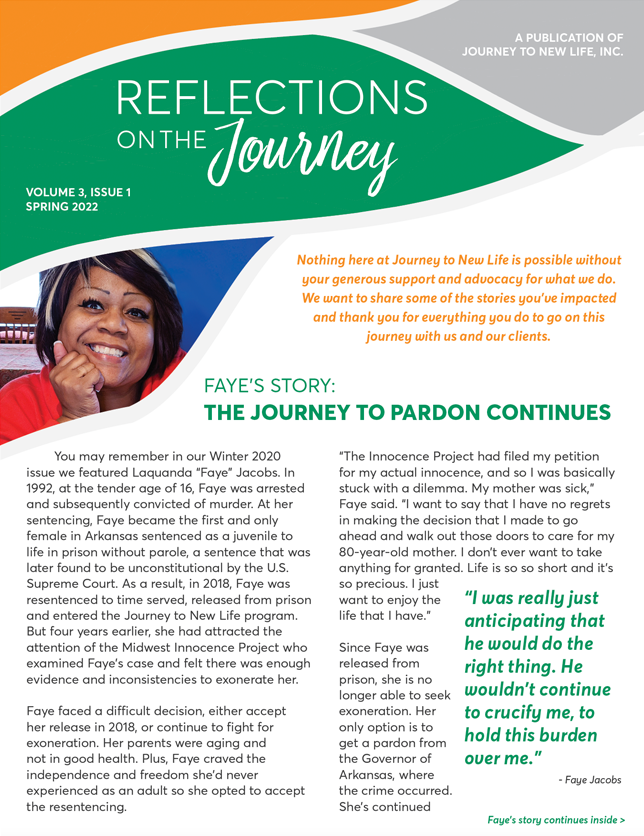
A year ago, JVC matched Jen Dever with Journey to New Life. Jen said she first learned about serving the community through the St. Gerard Majella parish in Canton, Mass. “While I was a student at Boston College, I learned much more about social justice, including through my time as a student leader and tutor to elementary school students in the 4Boston organization,” Jen said.
Jen has been a valuable addition to the team at Journey to New Life. Her 12 months of service will end soon, so we wanted her to share her experience, in her own words. Here’s her story of her faith in action: “I decided to come to Journey to New Life because mass incarceration is one of the most pressing social justice issues of our time. The ability to do direct service here means working closely with people who are being impacted by our justice system.
Overall working here is very impactful. I have met so many hardworking and kind clients who are making changes to improve their own lives in spite of the many obstacles and prejudices they face. I have also seen some of the bigger problems of our systems (like parole and government assistance) as well as how poorly people are often treated after they have been to prison, when others are quick to judge and dismiss them. As described by Michelle Alexander in The New Jim Crow, our society assigns people second-class citizenship for life after incarceration.
Clients are usually rejected from potential housing and jobs due to their justice system involvement, even when they have already served all of their prison time. They have paid their dues according to the law, and yet that is not good enough in civil society. Additionally, the lack of any true rehabilitation opportunities in our carceral system means their education and employment qualifications have not advanced while incarcerated. Parole stipulations demand that clients need to have a job, a home plan and to not associate with other “felons” despite the lack of support people usually have after prison from family or friends.
I have seen how the assistance Journey to New Life offers, including housing support, means people have the financial and emotional support to work on successful re-entry. Many clients are also struggling with substance use disorders and mental illnesses, which were also criminalized and contributed to their prison time. The lack of support for these issues in the community means many are forced to work full-time jobs below the living wage to the detriment of their mental health and recovery.
In a world that often tells people what is “wrong” with them I think it is radical to affirm people’s strengths and to tell them that no matter who they have been, they are worth building the kind of life they want. Housing, as a human right, is just one belief embedded into Journey to New Life through the housing-first model that we use where all clients are assisted with permanent housing so that they have the security needed to begin to focus on other aspects of their lives as well.”
Do you, or someone you know, want to get involved? Get in touch today!

